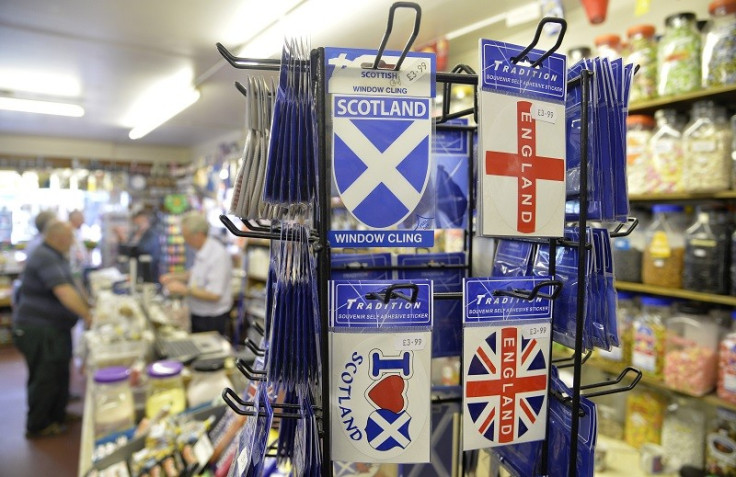Scottish Independence Q&A: Top Prof Reveals What Scots and English Really Think of Each Other

The vexed question of how the Scots and the English perceive each other is of growing political importance. The two nations have been bound together since the beginning of the 18th century but the referendum on Scottish independence scheduled for 2014 has stoked old rivalries and forced debate.
IBTimes UK spoke to Michael Kenny, professor of politics at Queen Mary, University of London, about the mutual misunderstandings of Scottish and English people and about the growth of Englishness.
Kenny, who holds a Leverhulme Trust major research fellowship, has explored and investigated the phenomenon of Englishness in his forthcoming book, The Politics of English Nationhood (Oxford University Press), which will be published in February 2014.
IBTimes UK: What are the main misunderstandings between Scottish and English people?
Michael Kenny: The two countries have been characterised as two nations moving in very different directions, which they have been for a while. In particular, with the Scots, the great power they have defined themselves against is England and the English.
It's a commonly made claim. Scottish people have forged a nationalism which is civic in character - it's broad-minded, it's based upon institutions and it's often suggested that Englishness is something quite different.
But the English and the Scots are friendly rivals. They've been engaged in a lot of cooperation and have a lot of commonality. The peoples have joined together in ventures such as the empire, warfare and the development of the welfare state.
We should think about England and the Scots, not England versus the Scots.
IBTimes UK: When did the shift in nationalism take effect?
MK: Scottish nationalism was in some ways strong or maybe stronger in the 19<sup>th century than in the 20<sup>th century. The split goes back a considerable way. There has also been a strand of Scottish opinion ever since the Act of Union in 1707.
The division is historically rooted but within Westminster there has been a growing, reluctant acceptance over the last decade that the differences between the English and the Scots are becoming extenuated.
IBTimes UK: But aren't those same political and cultural frustrations replicated in England's North-South divide?
MK: One of the aspects of the renewed English self-awareness is that it's often divided between people's sense of regional loyalty. For some people in the North, London is at the root of the problem and a lot of contemporary ideas about Englishness take the capital as their opposite.
They describe London as hoarding the country's economic and political power and pushing against the capital's authority. Even though those divides are palpable, there has been a stronger sense of an English identity which encompasses and embraces regional divides.
IBTimes UK: What role does social class play in contemporary Englishness?
MK: Class is very much part of the story of Englishness in two senses. Firstly, there has always been different class understandings of what it means to be English. The dominant image of the English identity was very much rooted in the culture of the landed gentry, associated with institutions such as the country house and a romanticism about the pre-modern rural image.
But there has always been alternatives to that theory of identity. Englishness has always been imagined in more radical terms - in relation to the culture of the labour movement, in England's big northern cities. There is an important intertwining of nationhood and class.
However, when I investigated who would rather be English than British, there is move towards the English identity across all social classes.
IBTimes UK: How would you describe Englishness?
MK: There isn't a single definition of Englishness because the identity has become a divided and plural way of imagining a common identity. There are different stories and visions of what it means to be English.
At one end, there is a more angry and populist English identity. But you've got other visions, including a traditional, small-C conservative sense of what it means to be English. That identity is a much more majoritarian idea, which people can hold on to whether they are from the left of the political spectrum or the right.
In addition, there is an emergence of a liberal multicultural sense of what it means to be English. You are beginning to see people argue that multiculturalism should be focused on England, not just Britain. The constituency for this identity would include some ethnic minority groups and urban professionals.
IBTimes UK: How has modern English nationalism transferred into the political world?
MK: Nationalism has found it hard to make its way into the main party system but the nationalism that has existed is British. Even the English Defence League, despite having 'English' in its name, the group's actual programme is focused on the whole of the UK.
We are beginning to see nationalism which is wrapped in a populist guise moving into our politics but the British party system has been successful in containing nationalism within the English heartland.
© Copyright IBTimes 2025. All rights reserved.






















